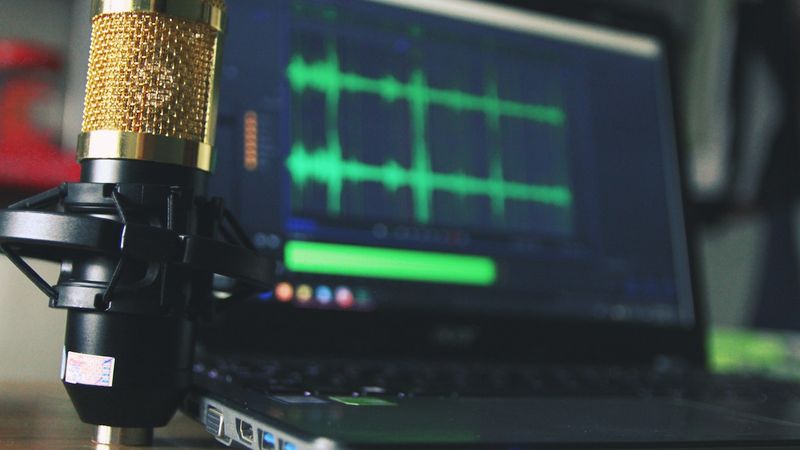Today I’m continuing my little experiment on ways to gain perspective when editing, specifically by working through the series of methods proposed by Susan Bell in The Artful Edit. Today I decided to tackle number 5, The Spoken Word, as a method because I had a number of passages of dialogue that I’ve been having problems with at the end of one of my stories and I wasn’t sure if they were bad or if I just thought they were bad.
Now, for most people sitting around reading aloud to yourself is going to be disconcerting. I know it makes me feel like an idiot most of the time. There’s also the possibility of your nosy housemates or your spouse coming in and asking what you are doing. The spouse might be easier to deal with, housemates less so. Intriguingly there is a way to get around this, assuming you can put up with a computerised voice. Microsoft Edge (yes, that Edge) has a built-in pdf reading text-to-speech system which is actually, surprisingly good.
So why am I using text to speech, this is about flow isn’t it? A janky robot voice isn’t going to help with flow. Well, you would be surprised. I thought something similar but the regularity and consistency that it provides, especially around punctuation is something to consider. A space is given a set weight, a comma a different weight so you can hear the commas quite clearly when it is reading your text (if it could understand and emphasize italics that would be a whole other level of awesome, but alas, it cannot). So if you’ve written a bit of dialogue broken by an action and you forget the comma, it is noticeable.
Additionally, because the text-to-speech system uses words, typos are shockingly apparent. Now if you’ve got a made-up word for your sci-fi or fantasy setting, for example a place name, it will sound off, but I think the benefit to your editing for punctuation and incorrect words will more than make up for it.
Now obviously we’ve just spent two short paragraphs talking about what is effectively line editing and the main point of these perspective exercises is for bigger-picture, plot and character editing. And here I think there are a few issues with using the computer, and likely with reading aloud. My biggest gripe is it robs the characters of their voice (unless you’re good with accents and changing how your own voice sounds). Because the text-to-speech system is so flat (no emphasis as I mentioned earlier) it makes the dialogue from characters sound very interchangeable. I was lucky with the bit of reading that I had it do because the two characters who spoke through the majority of it had a distinct differentiation between them, but for characters more similar I could see this becoming very difficult to follow without some extreme focus.
Speaking of focus, if you’re reading it to yourself this can be very powerful for forcing you to keep focused. If, like myself, you opted for the automated system, you might run into trouble. I decided to listen to mine with headphones to drown out some background noise, the unfortunate side effect with this was that because the text-to-speech system is so consistent in its tone, I found my thoughts drifting off. This might be a red flag for the pacing and tension in the book, but I’m under the impression that it is more due to the familiarity with what I had written and my lack of sleep the prior night. So beware the possibility of zoning out while listening if you choose the text-to-speech approach.
Now, in The Artful Edit it’s suggested that this method could be done with an audience (the level of captivity required of said audience is left up to your discretion, and the laws in your state/country) and I believe that this might be incredibly helpful but I couldn’t manage to collect an audience willing to sit around and listen to me on their weekend.
To summarise: Text-to-speech is great for catching small errors and pointing out the obvious screw-ups that your brain auto-corrects when reading normally. Reading aloud is helpful assuming you aren’t interrupted every five minutes by nosy neighbours, an annoyed spouse trying to sleep or curious children. Reading to an audience would be great but finding one is the difficult part. All in all, I’m not sure how beneficial it is as a perspective gaining technique, though helpful, I will have to withhold judgement until I’ve tried the other suggested methods.
All in all, for the part I wanted to use this method for, i.e. correcting a few dialogue passages, it gave me enough distance from them (being read in someone else’s voice) to reassure me that they aren’t as horrific as I had first thought and the words used and the tempo weren’t as bad as I had expected. So, if you’re stuck in a similar place, I’d recommend trying it, but not relying on it for perspective outside of that, but that might just be how my brain works, you might find it more useful.
